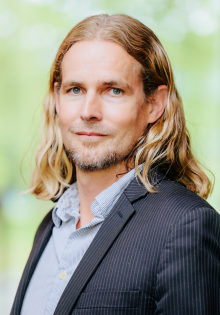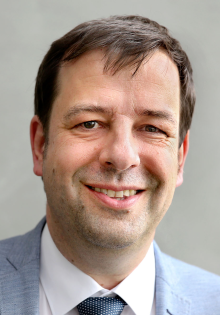Scientists at the Institute for Photonic Quantum Systems (PhoQS) and the Paderborn Centre for Parallel Computing (PC2) at Paderborn University have developed a powerful open-source software tool that enables the simulation of light behaviour in quantum systems. What makes it special: With "Phoenix", as it is called, researchers can investigate complex effects in unprecedented detail within a very short time - without the need for high-performance computing skills. The results have now been published in the renowned journal "Computer Physics Communications".
Phoenix solves equations that describe how light interacts with matter at quantum level. This is essential for understanding and designing future technologies such as quantum computers and advanced photonic devices. "Specifically, it is about so-called non-linear Schr?dinger and Gross-Pitaevskii equations in two spatial dimensions. Thanks to its design, Phoenix can run on standard laptops or high-performance GPUs and is up to a thousand times faster and up to 99.8 per cent more energy-efficient than conventional tools," explains Prof Dr Stefan Schumacher from PhoQS.
Phoenix is free and available to researchers all over the world. The software is already being used to explore new physical effects in rare quantum states of light and can help scientists to better understand and control light at the smallest scales.
The first author of the current study, doctoral candidate Jan Wingenbach, adds: "The optimisation to the current level was only possible thanks to our close collaboration with the HPC experts from PC2." HPC - High Performance Computing - is one of the central research focuses of Paderborn University, which not only has a long tradition and relevant expertise in the field of computational science, but also offers state-of-the-art, world-class infrastructure. A large part of the computing capacity is made available to researchers from all over Germany as part of the National Supercomputing Centre (NHR). Only recently, the new Paderborn supercomputer "Otus" made it to fifth place in the so-called "Green 500", the list of the world's most efficient computer systems, at the ISC in Hamburg, the international trade fair for high-performance computing, artificial intelligence, data analytics and quantum computing.
PhoQS is making a global impact in the field of photonics and quantum research. Thanks to an interdisciplinary team of experts from the fields of physics, mathematics, computer science and Electrical Engineering, it conducts excellent research in the fields of quantum simulation, communication, metrology and computing. Last year, the first light-based quantum computer in Germany (PaQS) began its work in Paderborn.
"This synergy between cutting-edge research in quantum photonics and high-performance computing has enabled us to push the boundaries of computing power and capability," adds Dr Robert Schade, research associate and HPC expert at PC2. Preliminary versions of the Phoenix code have already contributed to important breakthroughs in quantum photonics. According to the team, the programme will provide an important computational tool for research into new photonic states and their interactions.
Read the paper: www.sciencedirect.com/science/article/pii/S0010465525001912
Further information and access to Phoenix: https://github.com/Schumacher-Group-UPB/PHOENIX
This text was translated automatically.





